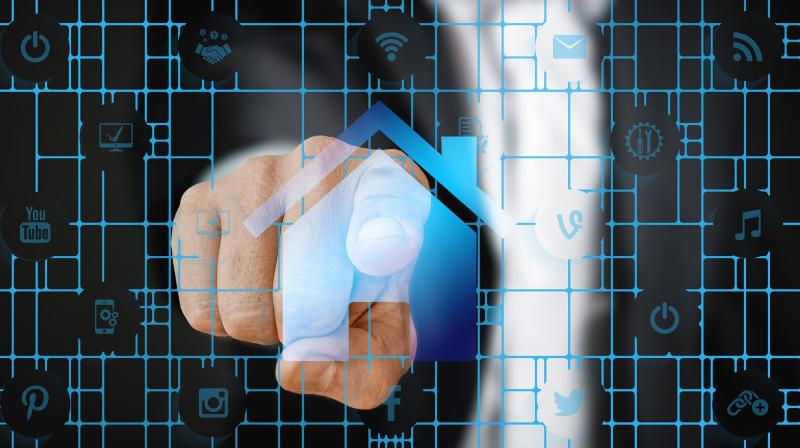Home automation: Transforming our lives ahead
Necessity is the mother of invention and tech has developed into automation.

Technology is changing the way we live, our lives in almost every way. It essentially adds convenience, comfort and peace of mind. Home automation brings to mind washing machines, dishwashers, refrigerators - that was in the 90’s. We have surely come a long way. In fact, over the final decades of the last century, and the recent ones of this century, technology has leapfrogged. In today’s fast moving digitalized era it has become the necessity for the society laden with long working hours and higher requirements of personal and professional efficiency. And as they say necessity is the mother of invention, here we are, in the 21st century, where technology has developed so much so that automation, be it residential or commercial, is on the rise and is inevitable in the foreseeable future.
Sophisticated computers, smartphones, mobile-controlled security systems, Mobile controlled Lights, fans, drone cameras – we have an ever-growing list of impressive devices taking us through our days. Of course, the very first advantage of having smart home systems is ease and convenience, since more connected devices can manage more operations and lets us handle other things meanwhile.
Currently, the home automation market in India is expected to reach INR 30,000crore by 2022 with the residential segment accounting for nearly 60% of the industry. Home automation in India today consists of four functional segments – Lighting, Security, Audio/Video and HVAC (Heating, Ventilation and Air Conditioning). Lighting is the largest component of residential market while security is the largest component of Commercial market.
To understand, the adoption of wireless technologies for connectivity has boosted the home automation market unleashing a number of trends. With time, the concept of home automation has evolved tremendously, especially by the development of the Internet of Things also popularly known as IoT. Smart homes occupied with connected products have made our daily lives better, simpler, and comfortable. IoT products have the ability to learn our residential technology preferences, link wirelessly to a remotely accessible app or program, and automate our homes, making them smarter than ever. The Internet of Things has brought enhanced functionalities into picture; from opening the door by a simple click of a button to securing your home in seconds. Be it measuring consumptions in real time or activating and deactivating devices without being in the same place, it has definitely added a world of greater possibilities to the mix. The biggest plus - these homes are not only technologically advanced but also more energy efficient than conventional homes. Not only time, IoT smart home devices can also help in reducing costs and energy.
Currently, the biggest challenge that IoT faces is a lack of regular standards. However, highly sophisticated and super connected data centers are increasingly becoming popular around the globe to cope with the increased data demand from new and evolving IoT technology.
To emphasize further, there are many wireless technologies used in home automation including Bluetooth, Wi-Fi, ZigBee and Z-Wave. Companies weigh trade-offs against application requirements which define parameters such as range, power consumption, reliability, data rate, security, and addressing. To align the same, Home automation companies are forming alliances and forums to ensure improvement in user experience and expand market power and also proper operation of system. This has led to clustering of large industry players jockeying for supremacy in different camps
Whether you decide to automate your entire home, or simply incorporate one or two smart home features, automation is a great way to make your home more functional and convenient. Most home automation services integrate a variety of features into one app or control panel, so you can control your home’s lighting, temperature, and more all at the same time. Once you start to understand the possibilities of home automation scheduling, you can come up with any number of useful and creative solutions to make your life better.
The Competition in the home automation segments is continuously increasing due to Do-It-Yourself kits and luxury installations. Along with this, Cloud-based services and general purpose controllers are driving the market. The future is here. Smart home automations are now DIY-friendly and fully customizable, so you can add convenience to every aspect of your home. If you’re on the fence, it’s time to get off and start making changes that make your life easier, maximize your home’s value, and help conserve energy.
The demand for home automation is likely to be supported by continued development of high-speed broadband services. As new and improved products come on the market, there will be a great emphasis toward taking advantage of digital technology and creating a better environment for home owners.
All this and more, Smart Home Technology seems promising indeed. However, what’s in the future? How shall the technology develop over the years? Sheer amount of consumer interest and adoption has led this sector to grow which means bigger, better and smarter home technology is constantly being developed to match our digital needs. The industry is surely on a tremendous upward trajectory. Home automation has come to stay and grow in India.
—by Tarun Lala, Executive Director, Fanzart.

